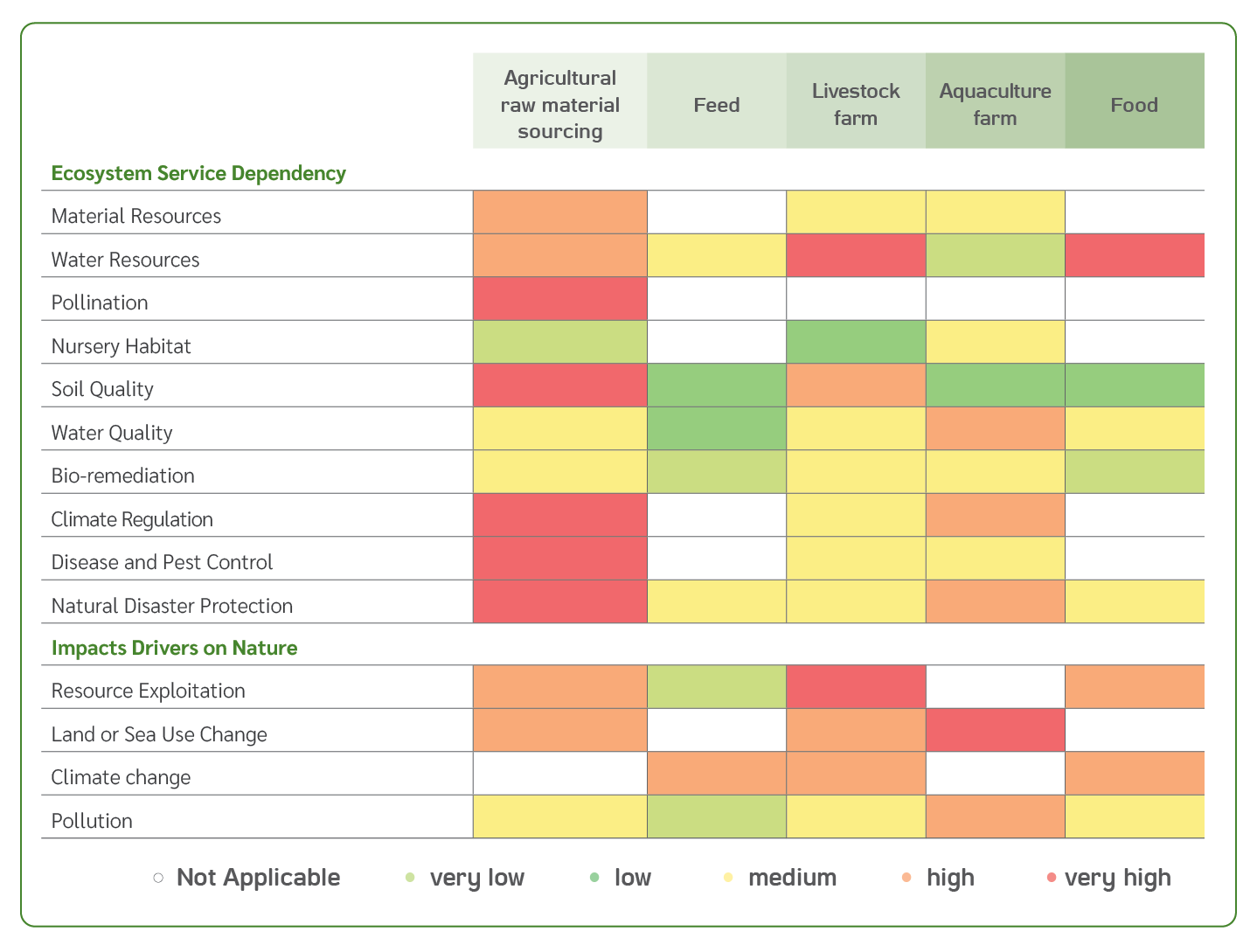Food security has become a globally critical agenda, especially for the Company who operates integrated agro-industrial and food businesses that rely on natural resources to maintain food security. Protection of biodiversity and ecosystems is therefore imperative to the Company. The Company has therefore assessed the dependence on ecosystem services and the impact drivers that may arise from business operations to the nature. ENCORE is applied as a tool to assess the level of materiality of each issue, leading to the risk management.

The Company conducted a critical biodiversity risk screening across 351 operational sites in Thailand, equivalent to 5,580 hectares, which covered three businesses – namely, feed business, farm and processing business, and food business. Biodiversity impact assessment was conducted by mapping the Company’s operational sites with critical biodiversity areas which are recognized in international or national level, including terrestrial and marine ecosystem, e.g. Key Biodiversity Areas (KBA), the International Union for Conservation of Nature (IUCN) Red Lists, World Heritages Sites, Ramsar Wetland and national protected areas. Any of the Company’s operational site located within a 2 – 5 kilometer radius of a critical biodiversity area would be flagged as having high risk of creating impacts on biodiversity. CPF employs tools, e.g. Integrated Biodiversity Assessment Tool (IBAT) and Geographic Information System (GIS) to map geolocation and measure the proximity between CPF operational sites and critical biodiversity areas.
After analyzing the Company’s operational sites that located close to key biodiversity areas and internationally recognized areas, the Company also analyzed operational sites with land use change areas to be residence area by land use map of Thailand. It was found that one of its swine farms with the area of 117 hectares in Chiang Mai province, was located within a 2 – 5 kilometer radius of critical biodiversity areas.
Performance





